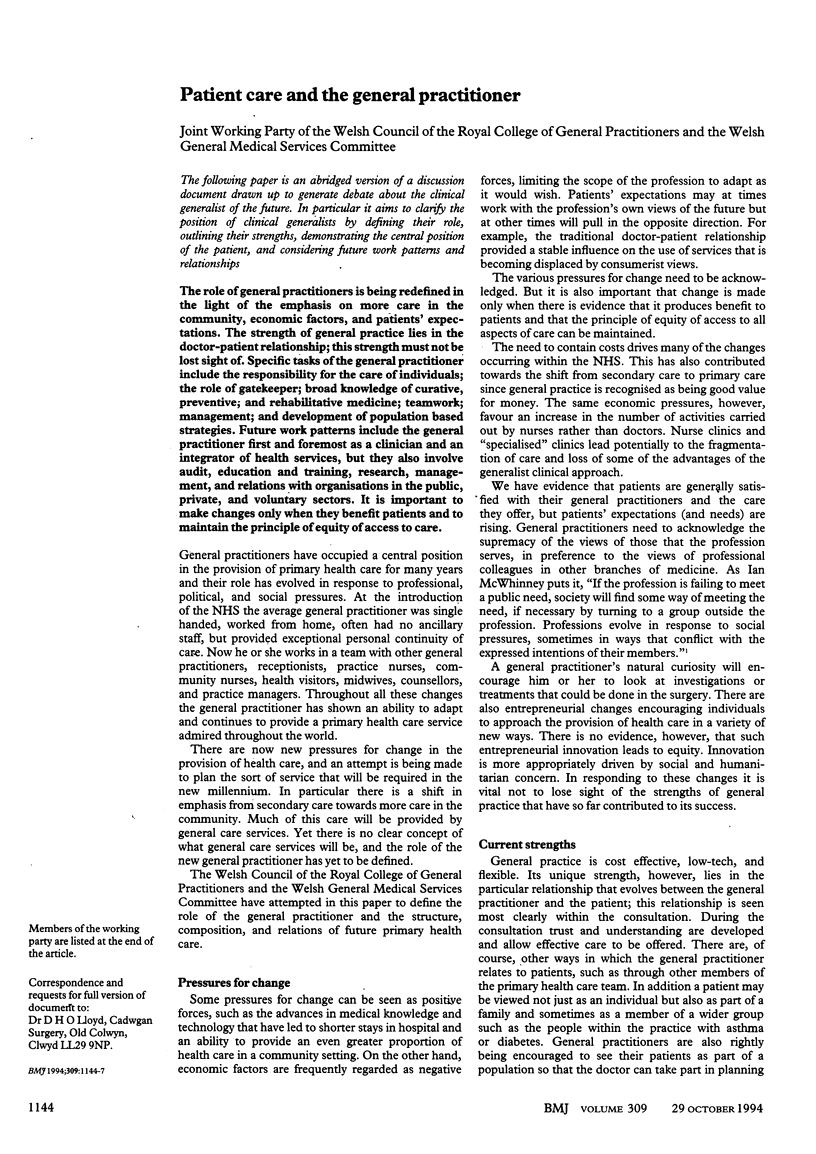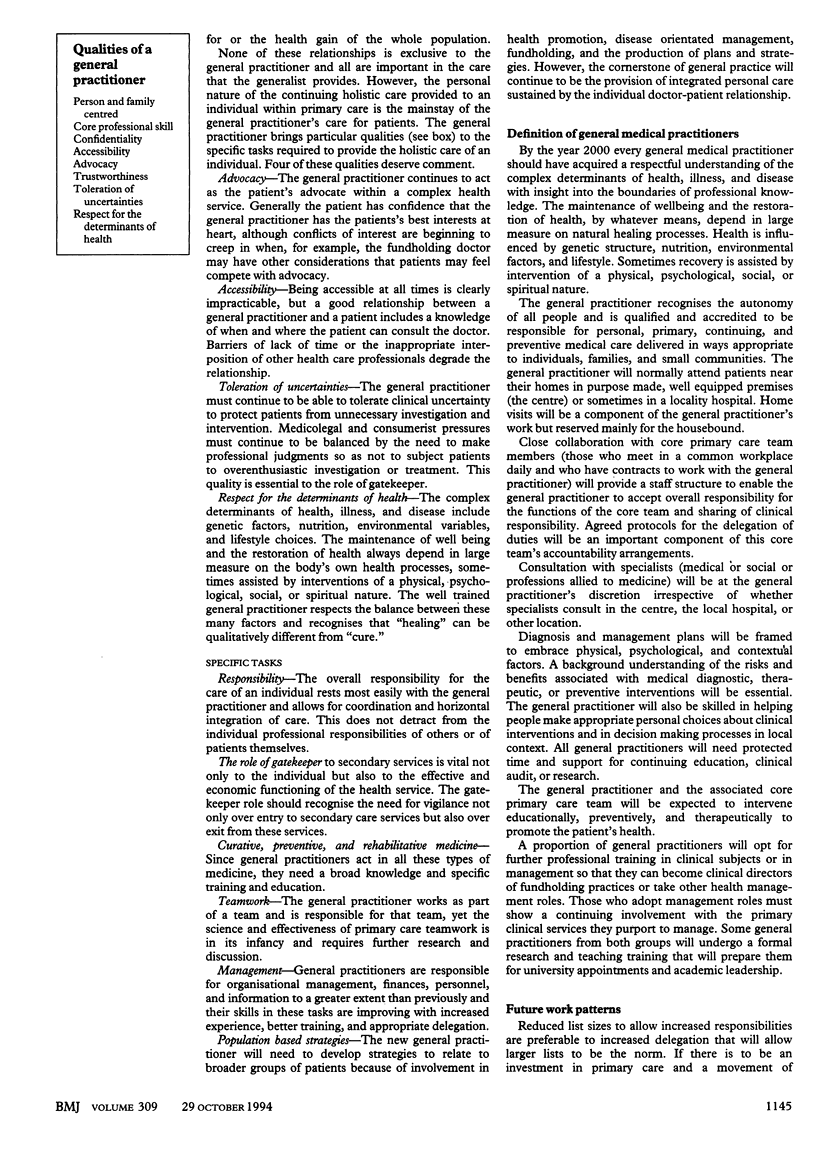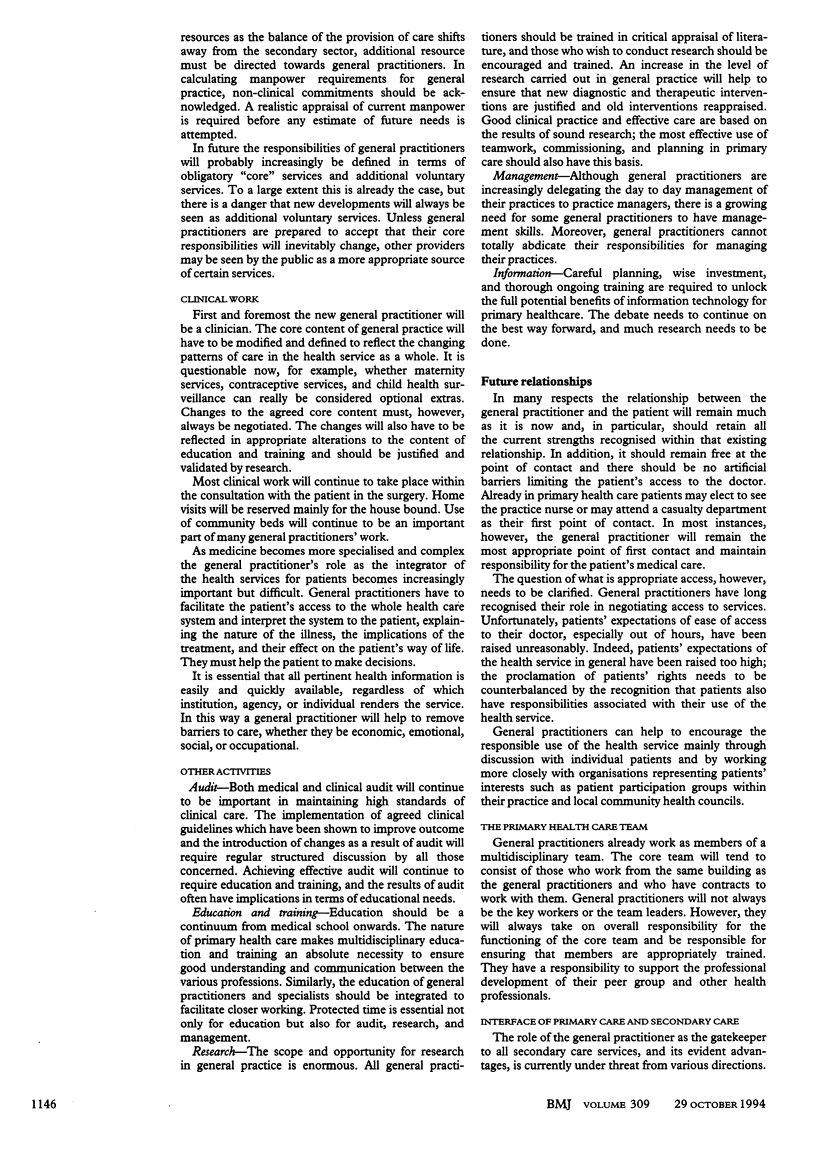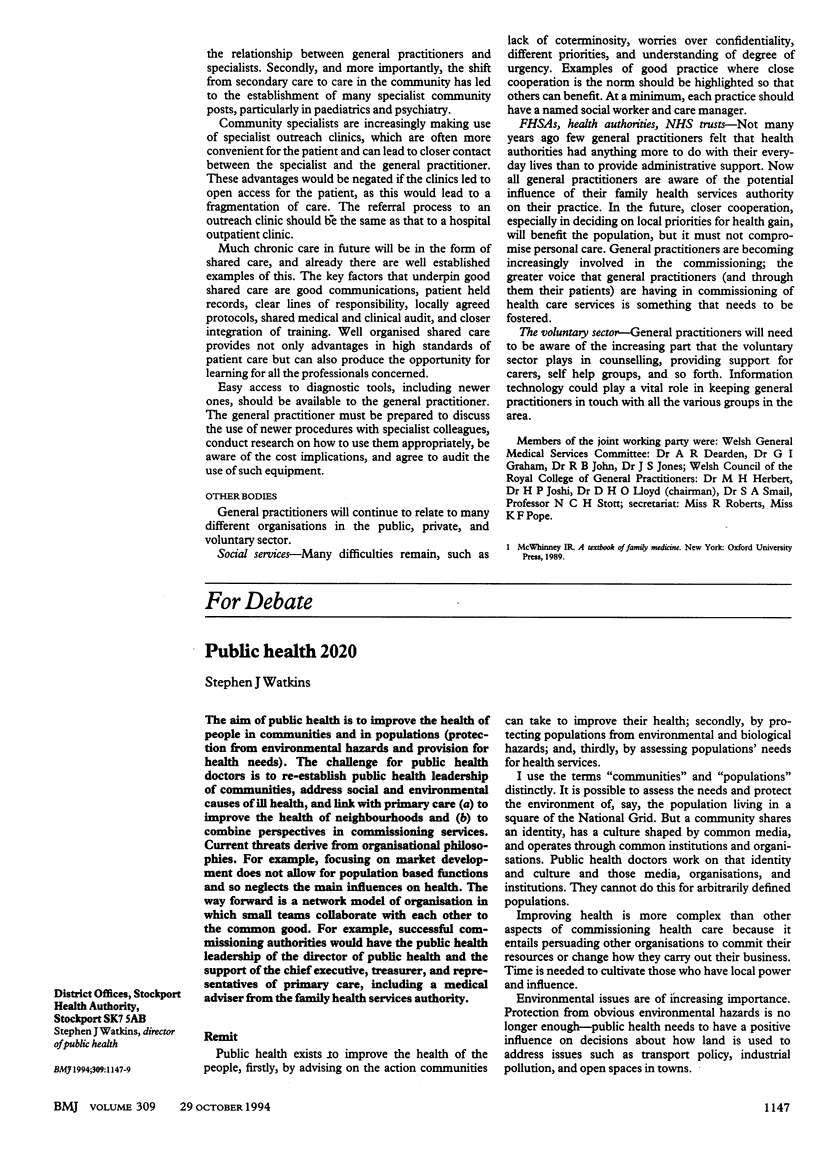Abstract
The role of general practitioners is being redefined in the light of the emphasis on more care in the community, economic factors, and patients' expectations. The strength of general practice lies in the doctor-patient relationship; this strength must not be lost sight of. Specific tasks of the general practitioner include the responsibility for the care of individuals; the role of gatekeeper; broad knowledge of curative, preventive; and rehabilitative medicine; teamwork; management; and development of population based strategies. Future work patterns include the general practitioner first and foremost as a clinician and an integrator of health services, but they also involve audit, education and training, research, management, and relations with organisations in the public, private, and voluntary sectors. It is important to make changes only when they benefit patients and to maintain the principle of equity of access to care.
Full text
PDF



Selected References
These references are in PubMed. This may not be the complete list of references from this article.
- Patient care and the general practitioner. Joint Working Party of the Welsh Council of the Royal College of General Practitioners and the Welsh General Medical Services Committee. BMJ. 1994 Oct 29;309(6962):1144–1147. [PMC free article] [PubMed] [Google Scholar]


